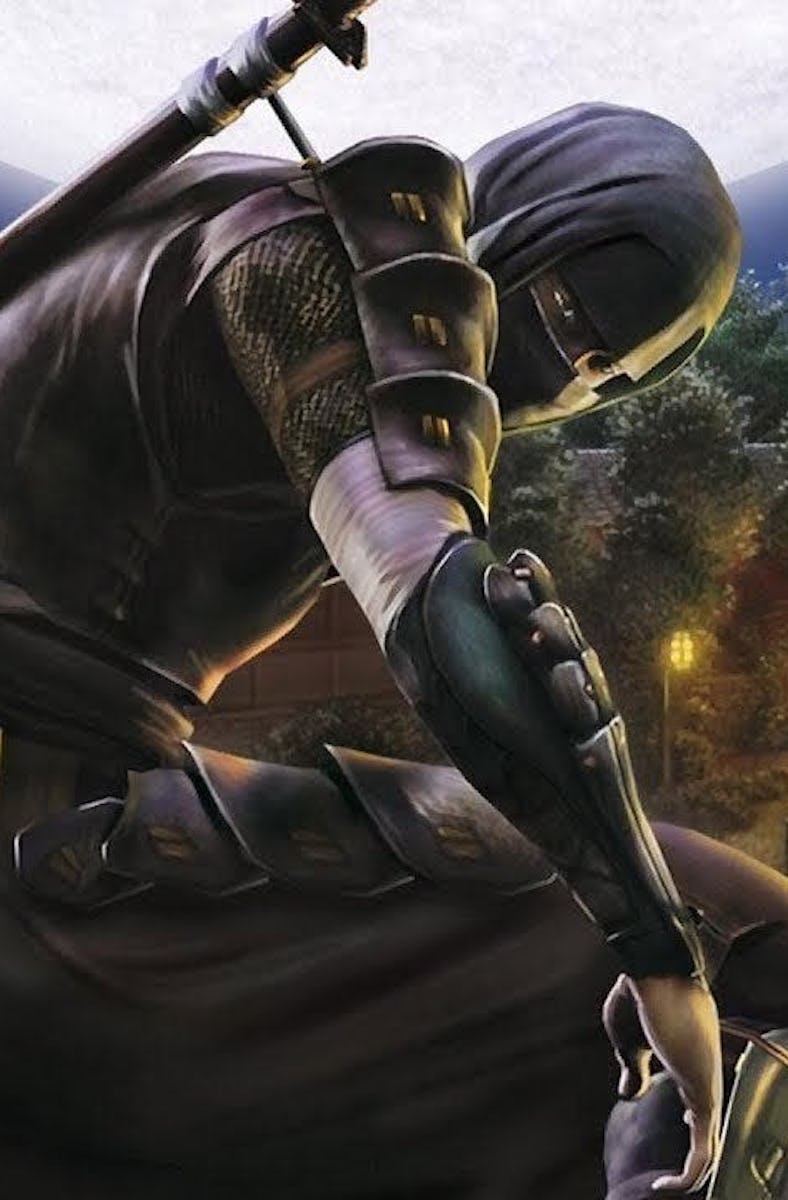How Tenchu: Stealth Assassins Changed Video Games Forever
Live by honor, kill by stealth.

For something that’s supposed to be unseen, stealth is everywhere in gaming these days. There’s nary an action/adventure title that doesn’t include some sort of sneaky crouch setting designed to let you get the drop on hapless guards. So when something becomes ubiquitous it can be hard to appreciate that it has roots. Stealth action started somewhere. In fact, the 3D stealth action we buy by the millions started 25 years ago this week when a brand new development studio launched their first-ever title for scrappy upstart Sony’s PlayStation.
Tenchu: Stealth Assassins launched February 26, 1998 in Japan (August 31 in the U.S.) and transported players to the 16th-century when warring samurai factions fought for control of the proud island nation. It’s a period marked by violent uprisings and civil war, but Tenchu wasn’t another hack-and-slash bloodbath. Instead, developer Acquire Corp. took a radically different approach (and a few innovative shortcuts) that transformed gaming and created a unique new genre: stealth action.
When Takuma Endo opened Acquire Corp. his intention wasn’t to create a genre, but rather, a sim. He said that his goal was to make a game about ninjas that got at the core of the ninja experience and didn’t use the aesthetic as window dressing for bland action. He wanted gamers to understand that ninjas weren’t superhuman, that they could and would die if they failed, and that sense of vulnerability still informs stealth games to this day.
Endo and his team were working in uncharted waters. No one had ever attempted the kind of game they were going to make, although they heard they had some competition from Hideo Kojima, who was developing Metal Gear Solid at the same time.
,This was part of the reason why Tenchu is set in Sengoku-era Japan; earlier concepts called for a modern-day setting. Technical limitations are why the game is set at night, too, as it eliminates the need for more complex lighting and shadows. Plus, it’s just cool.
Shadows, the best friend of both ninjas and game devs.
For many U.S. gamers, the authentic setting added a crucial layer of immersion to the whole experience. Few had ever played a game set in feudal Japan, let alone a 3D one. The grounded gameplay took things a step further. Unlike a lot of games at the time that emphasized body counts and high scores, Tenchu ranked you on how little you did. The purpose was to stay hidden and leave no trace behind. This meant while there might be 10 or 15 guards on a level, you’d score highest by killing only three or four. Earning a coveted Grandmaster rating would unlock new tools in your ninja arsenal.
The gnarly ninja tools were a huge hit with fans. The standout tool, the grappling hook, added a level of traversal that was hard to find anywhere else. And because you could hang from roofs and scale ledges to perform kills it was an essential piece of gear. But other tools were clever, if not as central. The blowgun was a game changer by allowing you to kill enemies with one hit at a distance, but also doubled as a snorkel that allowed you to hide underwater. The poison rice balls you could use to bait guards were so fun, and so popular, they became an unofficial mascot for the franchise.
The closest thing Tenchu fans have to a mascot.
Tenchu balanced out its stealth approach with exciting, blood-soaked kill animations. The cycle of tension and release was so satisfying for players. You’d quietly and carefully stalk your target then unleash a decapitation or disembowelment as gore spattered the walls and dotted your screen. It established a level of brutality we still see in the stealth action genre. These realistic, graphic payoffs are a big part of what makes these games so much fun.
It’s a bloody good time (if you’re not a guard).
Unfortunately for Tenchu, the fun stopped after a few follow-up titles. None of the sequels earned the critical and commercial acclaim as the first game did, even though it cultivated a rabid fan base still hungry for a PS5 reboot. And while we may not get a named Tenchu entry anytime soon, its influence is obvious in smash-hits like Sekiro and Ghosts of Tsushima. And unless you’ve got a working PS1 at home (or are willing to navigate ROMs) this stealth pioneer remains one of gaming history’s hidden gems.